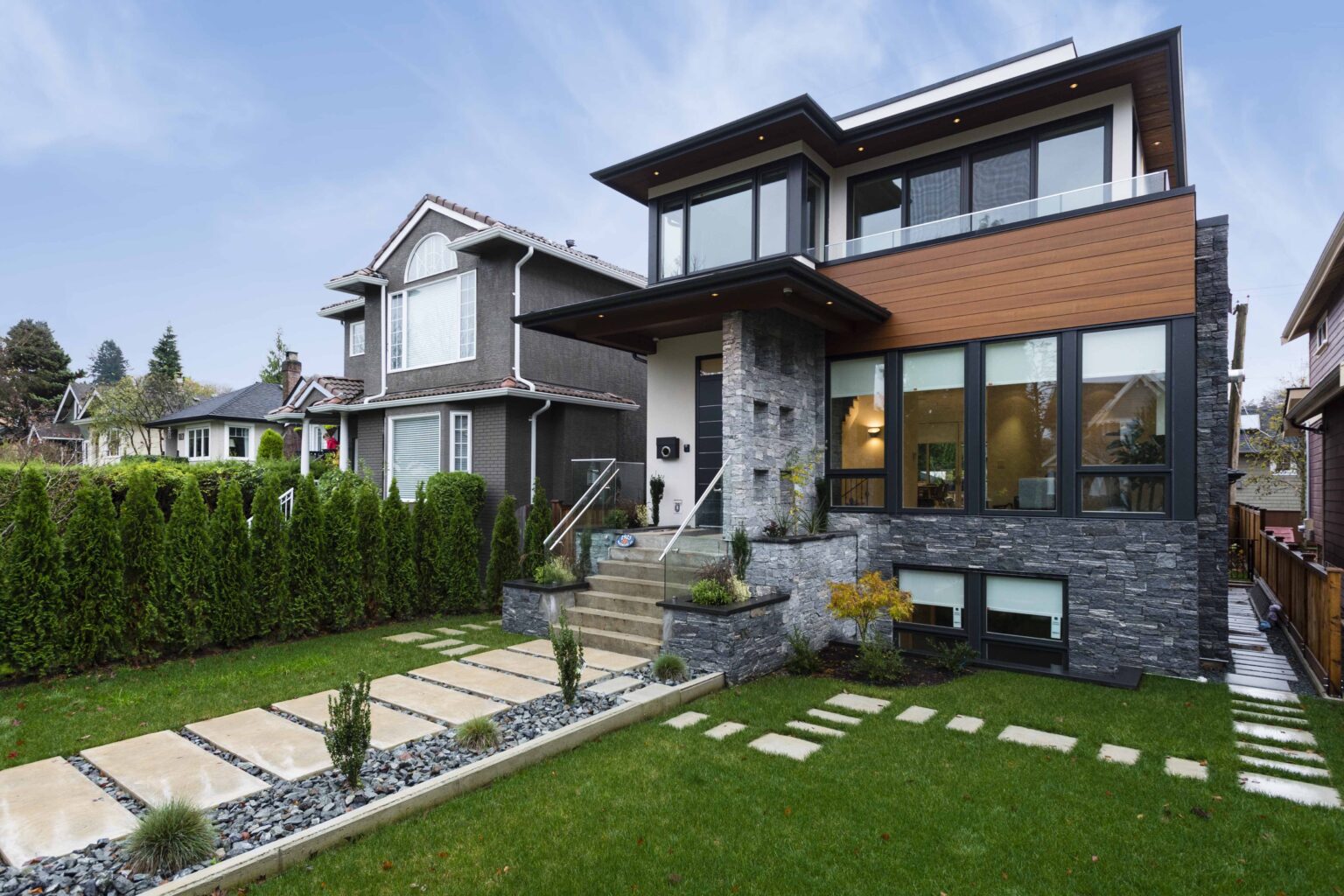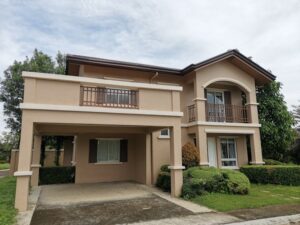Picture walking into a home that knows exactly when you’re arriving, adjusts the temperature to your preference, and has already started playing your favorite playlist while brewing your morning coffee. This isn’t a glimpse into some distant future—it’s what Vancouver custom homes in 2025 families are experiencing every single day.
The custom home market has evolved dramatically, with homeowners no longer satisfied with simply choosing paint colors and cabinet styles. Today’s discerning families want homes that actively enhance their health, adapt to their changing needs, and operate as intelligent, sustainable ecosystems that grow with their lifestyles.
At CoreVal Homes, we’re seeing an unprecedented shift toward personalized features that blend cutting-edge technology with wellness-focused design, all while maintaining the stunning aesthetic that makes Vancouver homes so distinctive. These aren’t just luxury add-ons—they’re becoming essential elements that define what it means to live well in 2025.
AI-Powered Smart Home Systems: Your House as an Intelligent Partner
The smart home technology revolution has reached a tipping point in Vancouver’s custom home market, transforming houses from passive structures into active partners in daily life. Modern AI-powered systems go far beyond simple voice commands—they learn your patterns, anticipate your needs, and make countless micro-adjustments throughout the day to optimize comfort, security, and energy efficiency.
Today’s systems integrate climate control, lighting, security, and entertainment into one seamless experience. Imagine your home recognizing that you usually arrive from work at 6:30 PM on Tuesdays, so it automatically adjusts the temperature, dims the lights to your preferred evening setting and starts the playlist you typically choose for unwinding. When you’re on vacation, the system creates realistic occupancy patterns with lights and blinds, while monitoring for any unusual activity through advanced facial recognition technology.
The Internet of Things (IoT) integration means your kitchen appliances, bathroom fixtures, and even your garden irrigation system communicate with each other. Your smart fridge can suggest dinner recipes based on what you have available, your bathroom mirror can display weather updates and calendar reminders, and your irrigation system adjusts watering schedules based on actual soil moisture and weather forecasts.
For Vancouver’s tech-savvy families, these systems also provide detailed energy consumption analytics, helping homeowners make informed decisions about their environmental impact while reducing utility costs. The investment in smart technology typically pays for itself within 3-5 years through energy savings alone, while dramatically increasing property values in BC’s competitive real estate market.
Wellness Spaces: Creating Personal Sanctuaries for Mind and Body
The pandemic fundamentally changed how we think about our homes, and dedicated wellness spaces have become non-negotiable features for Vancouver families building custom homes in 2025. These aren’t just spare rooms with a yoga mat—they’re carefully designed environments that actively promote physical and mental well-being.
Home gyms and fitness studios now incorporate professional-grade air filtration systems, specialized flooring that reduces joint impact, and floor-to-ceiling mirrors with integrated display screens for virtual personal training sessions. Many include direct outdoor access, allowing for seamless indoor-outdoor workout experiences that take advantage of BC’s natural beauty.
Meditation and mindfulness spaces feature acoustic treatments to create truly quiet environments, specialized lighting that mimics natural circadian rhythms, and sometimes incorporate elements of biophilic design like living walls or water features. These spaces often include built-in storage for meditation cushions, aromatherapy supplies, and sound equipment, creating dedicated sanctuaries from the digital world.
Spa-inspired bathrooms have evolved into personal wellness retreats featuring steam showers, soaking tubs positioned to take advantage of mountain or ocean views, and integrated sound systems for relaxation. Advanced water filtration systems ensure the purest bathing experience, while heated floors and towel warmers add luxury comfort during Vancouver’s cooler months.
The most forward-thinking designs include indoor gardens or greenhouse spaces where families can grow their own herbs and vegetables year-round, connecting daily wellness practices with sustainable living. These spaces often function as transition zones between indoor and outdoor living areas, extending the growing season in Vancouver’s moderate climate.
Sustainability Features: Building for the Future, Not Just Today
Vancouver homeowners are increasingly focused on environmental responsibility, and custom home builders are responding with innovative sustainability features that go far beyond basic energy efficiency. Today’s eco-friendly custom homes are designed as integrated systems that minimize environmental impact while maximizing comfort and long-term value.
Net-zero energy homes are becoming the gold standard, incorporating solar panel arrays, geothermal heating and cooling systems, and superior insulation packages that generate as much energy as they consume annually. Advanced battery storage systems ensure energy independence even during power outages, while smart energy management systems automatically optimize when to use, store, or sell excess energy back to the grid.
Sustainable building materials feature prominently in 2025 designs, with reclaimed wood from BC forests, recycled steel, and innovative materials like mycelium-based insulation gaining popularity. These materials often carry compelling stories—imagine dining room beams crafted from timber reclaimed from historic Vancouver buildings, connecting your new home to the city’s rich heritage.
Water conservation systems include rainwater harvesting for irrigation, greywater recycling systems that reuse water from sinks and showers for garden watering, and permeable paving materials that reduce stormwater runoff. These features are particularly valuable in Vancouver, where water management is becoming increasingly important due to climate change impacts.
Green roofs and living walls serve multiple purposes: they provide natural insulation, improve air quality, create habitat for local wildlife, and offer beautiful views from upper floors. Many Vancouver custom homes incorporate rooftop gardens where families can grow food while enjoying panoramic mountain and water views.
The investment in sustainability features typically increases property values by 10-15% while significantly reducing ongoing operating costs. More importantly, these features align with Vancouver’s commitment to environmental stewardship and often qualify for municipal rebates and incentives.
Flexible Living Spaces: Adapting to Life’s Changing Needs
The concept of flex rooms has evolved from a nice-to-have feature to an essential element of thoughtful custom home design. Vancouver families are increasingly aware that their needs will change over time, and they want homes that can adapt rather than require expensive renovations or potentially forcing a move.
Multi-generational living capabilities are driving much of this trend. Families are designing homes with spaces that can function as independent guest suites for visiting relatives or aging parents, complete with separate entrances, kitchenettes, and accessible bathroom facilities. These spaces can serve as home offices, rental units, or recreational areas when not needed for family use.
Convertible room designs use moveable walls, modular built-ins, and flexible electrical and plumbing rough-ins to allow spaces to transform based on changing needs. A playroom for young children can become a teenager’s retreat, then transform into a home office for empty-nesters. Advanced planning during construction makes these transitions seamless and cost-effective.
Basement finishing capabilities are being built into initial designs, with proper waterproofing, insulation, and utility rough-ins that make future below-grade living spaces both comfortable and legal. This approach allows families to expand their living space as budgets allow or needs change, without the complexity and expense of major structural modifications.
Outdoor living integration includes covered patios, outdoor kitchens, and seamless indoor-outdoor transitions that effectively double living space during Vancouver’s pleasant weather months. Large glass wall systems that can fully retract blur the boundaries between inside and outside, creating flexible entertainment spaces that adapt to group size and weather conditions.
Indoor-Outdoor Living: Maximizing Vancouver Custom Home Natural Beauty
Vancouver’s stunning natural setting demands home designs that celebrate and integrate with the surrounding environment. Indoor-outdoor living has evolved beyond simple patio doors to become a fundamental design philosophy that shapes entire home layouts and lifestyle patterns.
Seamless transitions between indoor and outdoor spaces are achieved through disappearing glass walls, consistent flooring materials that flow from interior to exterior, and roofline designs that create natural extensions of indoor rooms. The most impressive installations feature 12-foot glass panels that slide completely into wall pockets, creating openings that span entire rooms and transform living spaces into pavilions that celebrate Vancouver’s temperate climate.
Outdoor kitchen and entertainment areas have become sophisticated extensions of interior living spaces, featuring professional-grade appliances designed to withstand coastal weather, integrated lighting systems, and comfortable seating areas that rival any indoor family room. These spaces often include fire features, outdoor televisions, and sound systems that make year-round entertaining possible even during Vancouver’s rainy seasons.
Landscape integration goes beyond beautiful gardens to include functional outdoor living zones. Outdoor showers, hot tubs positioned for privacy and views, and meditation gardens create resort-like experiences at home. Many designs incorporate terraced outdoor spaces that work with Vancouver’s hillside topography, creating multiple outdoor rooms at different levels, each with its own character and view perspective.
The key to successful indoor-outdoor integration is weather protection without visual barriers. Retractable awnings, heated outdoor surfaces, and strategic use of overhangs allow families to enjoy outdoor spaces comfortably throughout Vancouver’s variable seasons. When properly designed, these features can add 30-40% to a home’s usable living space while creating seamless connections to the natural beauty that makes Vancouver such a desirable place to call home.
Home Office Evolution: Designing for the Future of Work
The home office revolution sparked by remote work trends has permanently altered how Vancouver families think about residential workspace design. Today’s custom homes include sophisticated dedicated office spaces that rival corporate environments while maintaining the comfort and personalization that makes working from home appealing.
Professional-grade technology infrastructure is built into these spaces from the ground up, including dedicated high-speed internet lines, extensive electrical outlets positioned for multiple monitors and equipment, and advanced cable management systems that keep workspaces clean and organized. Many offices include video conferencing lighting systems and acoustic treatments that ensure professional presentation quality for virtual meetings.
Flexible workspace designs accommodate changing work styles and multiple users. Built-in desks that can adjust between sitting and standing heights, modular storage systems, and separate entrances allow home offices to function independently from family activities while remaining integrated into the overall home design. Some families are incorporating client meeting areas with separate entrances and washroom access for businesses that require occasional in-person meetings.
Wellness integration in office design includes natural lighting optimization, air quality management, and views of outdoor spaces that reduce the isolation and health impacts often associated with extended computer work. Biophilic design elements like living walls or water features help maintain mental clarity and reduce stress during intense work periods.
The most forward-thinking office designs include backup power systems, redundant internet connectivity, and climate control independent from the main house systems, ensuring that work can continue even during power outages or HVAC maintenance. These features have become particularly valuable for families with high-stakes professional responsibilities that require absolute reliability.
Takeaway:
Vancouver’s custom home market in 2025 reflects a fundamental shift toward homes that actively enhance quality of life through intelligent technology, health-focused design, and environmental responsibility. These features aren’t just luxury additions—they’re investments in long-term comfort, sustainability, and property value that position families for success in an evolving world.
Whether you’re planning your forever home or considering custom building as your next step, partnering with experienced builders who understand these trends will ensure your investment delivers both immediate satisfaction and lasting value.
Contact CoreVal Homes today for your family’s future Vancouver custom home.


